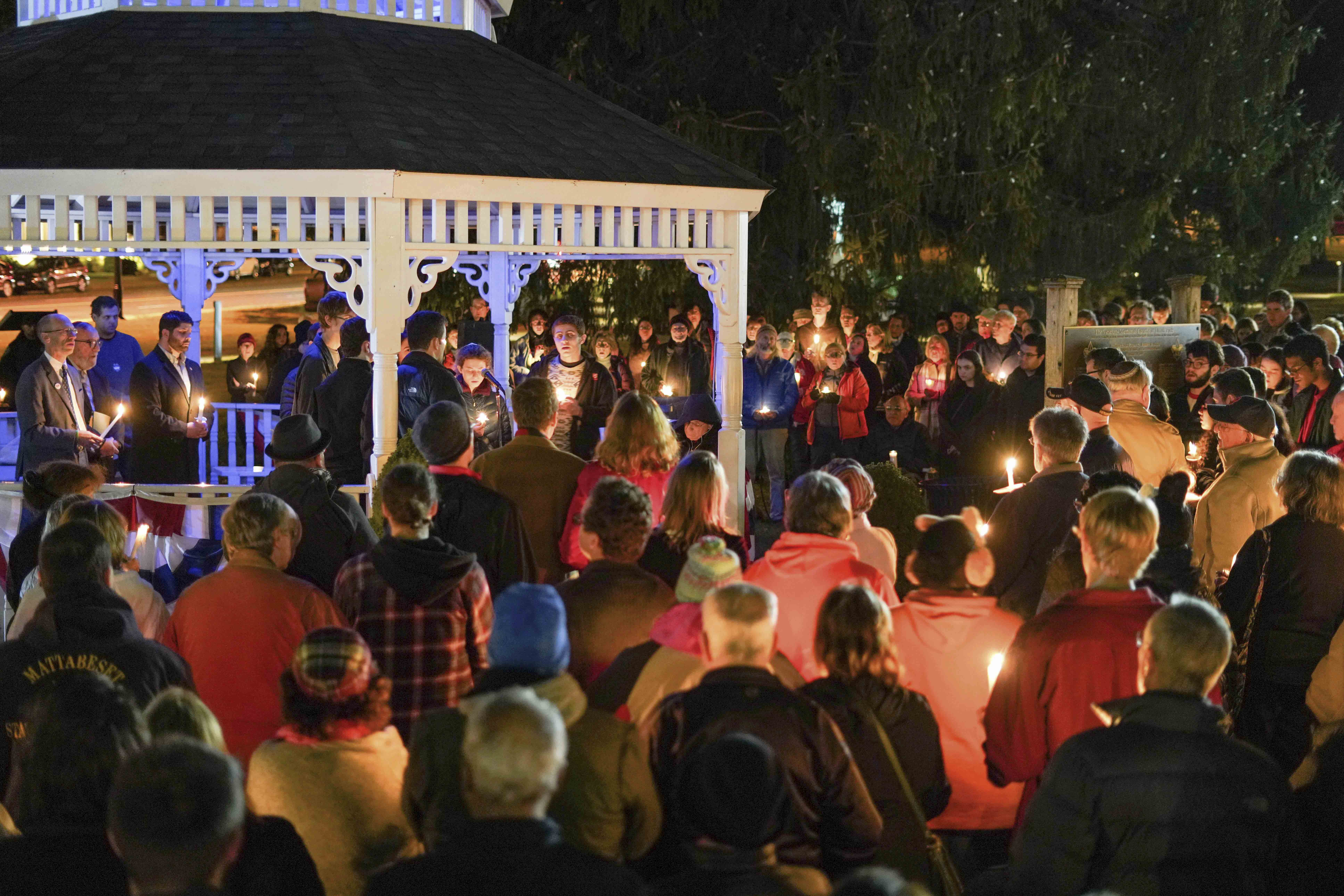
Cher Qin, Assistant Photo Editor
On Sunday evening, a crowd of Middletown residents and Wesleyan community members gathered on South Green to remember the 11 victims who were killed in a shooting at the Tree of Life Synagogue in Pittsburgh on Saturday morning. Organized by Temple Adath Israel and publicized to Wesleyan students in emails sent by University Jewish Chaplain Rabbi David Teva and President Michael Roth, the vigil provided a space for members of the Middletown community to stand against anti-Semitism and mass violence.
Attendees lit candles, sang Hebrew songs, and listened to Wesleyan’s Mazel Tones a capella group perform two pieces. Adath Israel Interim Rabbi Marshal Press and Sarah Steinfeld, wife of state Representative and state Senate candidate Matt Lesser, also spoke. Steinfeld, a Pittsburgh native, grew up four blocks from where the Tree of Life Synagogue now stands in the city’s predominantly Jewish Squirrel Hill neighborhood.
Rabbi David, who offered his support to those affected by the tragedy in an email to the Wesleyan Jewish Community, was encouraged by the number and diversity of people he saw in attendance at Sunday’s event.
“Tragically violent hate crimes and mass casualty incidents happen all too often in our country,” he wrote in an email to the Argus. “They also happen at mosques, African American churches and at LGBTQ night clubs. It was humbling to see so many different people come together so quickly to stand up against hatred and violence directed this time towards Jews.”
Yael Krifcher ’19 also attended the vigil with a group of friends. Krifcher’s grandparents live in Squirrel Hill, and she spoke to them briefly on Saturday morning to make sure they were okay. On Saturday evening, she and a few other students said a prayer of mourning and held an open conversation at the Wesleyan Jewish Community’s weekly Havdalah service. She feels particularly grateful to have the support of Wesleyan’s strong Jewish community and spoke about what she and others are feeling in the aftermath of Saturday’s shooting.
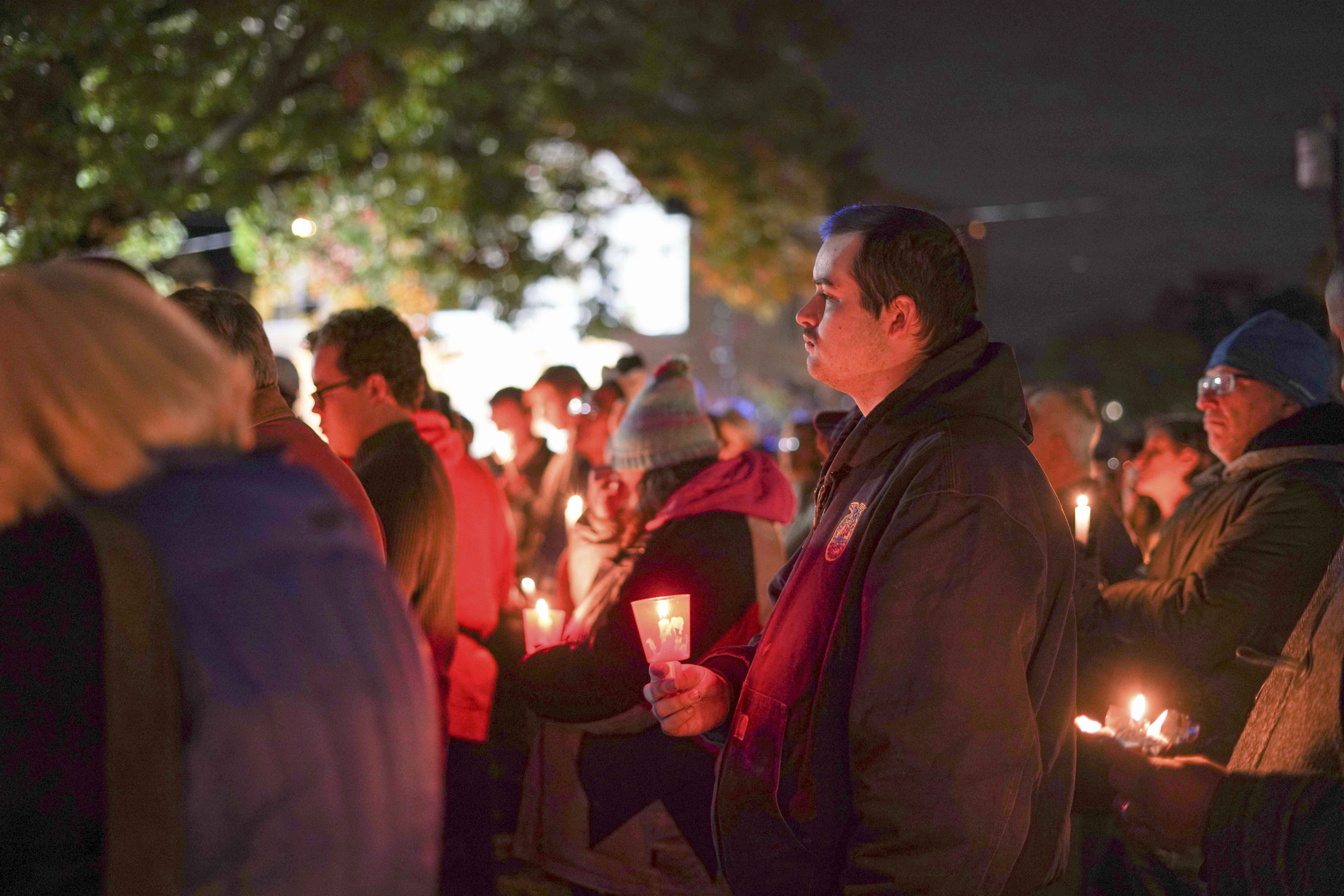
Cher Qin, Assistant Photo Editor
“It’s very difficult to know what to do in this situation,” she said. “I think there’s that natural inclination to mourn. I think a lot of people are afraid. I think some people, myself included, have felt confused and conflicted about what they expect of our non-Jewish friends. I think it’s difficult to realize what I’ve needed in this moment in terms of what I need from my non-Jewish friends.”
Krifcher felt particularly connected to her Jewish identity and greater Middletown’s Jewish community at Sunday’s vigil.
“In moments like this, to be physically outside in community with Jews and non-Jews alike saying Hebrew words and singing Jewish songs and being in a moment of Jewish community and prayer in the public like that, that’s really meaningful to me,” she said.
The man accused of carrying out Saturday’s shooting, Pittsburgh resident Robert D. Bowers, entered the synagogue yelling anti-Semitic slurs and opened fire. He now faces 29 state and federal charges and appeared in court on Monday.
In response to the revived discussion of anti-Semitism triggered by this event, Krifcher spoke about the pressures Jews are now under to define and prove the discrimination their communities have faced for centuries.
“As a Jew, in light of what has just happened, and speaking on behalf of my fellow Jews, I know a lot of us are being forced to answer this question of, what is anti-Semitism and is it still real, and is anti-Semitism a part of white supremacy, and how does it compare to other forms of white supremacy?” she said. “And I think that’s been really hard for a lot of us…Like, Google it. My community is in pain right now, and I have to explain what that looks like?…In this moment of all moments, we’re still defending ourselves from this idea that we’ve made it up.”
Krifcher also highlighted the fact that the fatal shooting of two black people in Kentucky on Wednesday did not receive nearly as much media coverage as Saturday’s event.
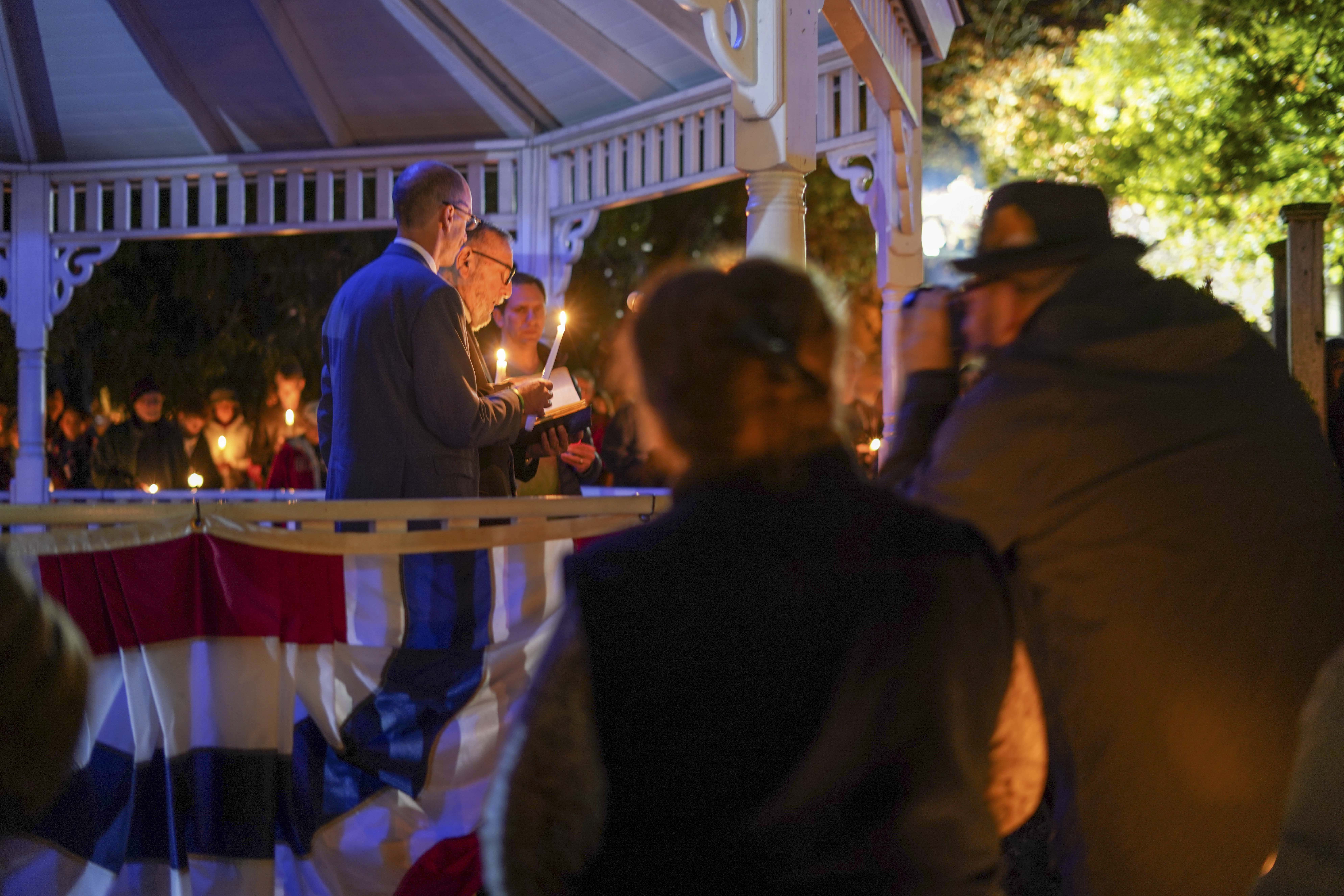
Cher Qin, Assistant Photo Editor
“I think there’s also frustration and pain and confusion surrounding the fact that two black people were shot and killed this past week, and it received no coverage,” she said. “And yet we’ve received so much coverage. And all of that coverage is still clouded in this absolute ignorance about what anti-Semitism actually looks like.”
Jewish Voices for Peace will be hosting a teach-in on Tuesday evening in the Bayit at 6 p.m. that will serve as both a space for non-Jews to learn about anti-Semitism and a platform for Jews to speak about their personal experiences with anti-Semitism.
Reflecting on the events of Saturday morning and Sunday’s vigil, Krifcher offered advice for how non-Jews can support their Jewish peers as they begin to heal and move forward after this attack on their community.
“If I were to give any takeaways to members of the non-Jewish community, particularly white Christians, is to make sure you’re reaching out to your friends to make sure they’re okay in light of this and giving them space to talk about it,” she said. “It’s not too late to make someone feel loved.”
William Halliday can be reached at whalliday@wesleyan.edu.
- Cher Qin, Assistant Photo Editor
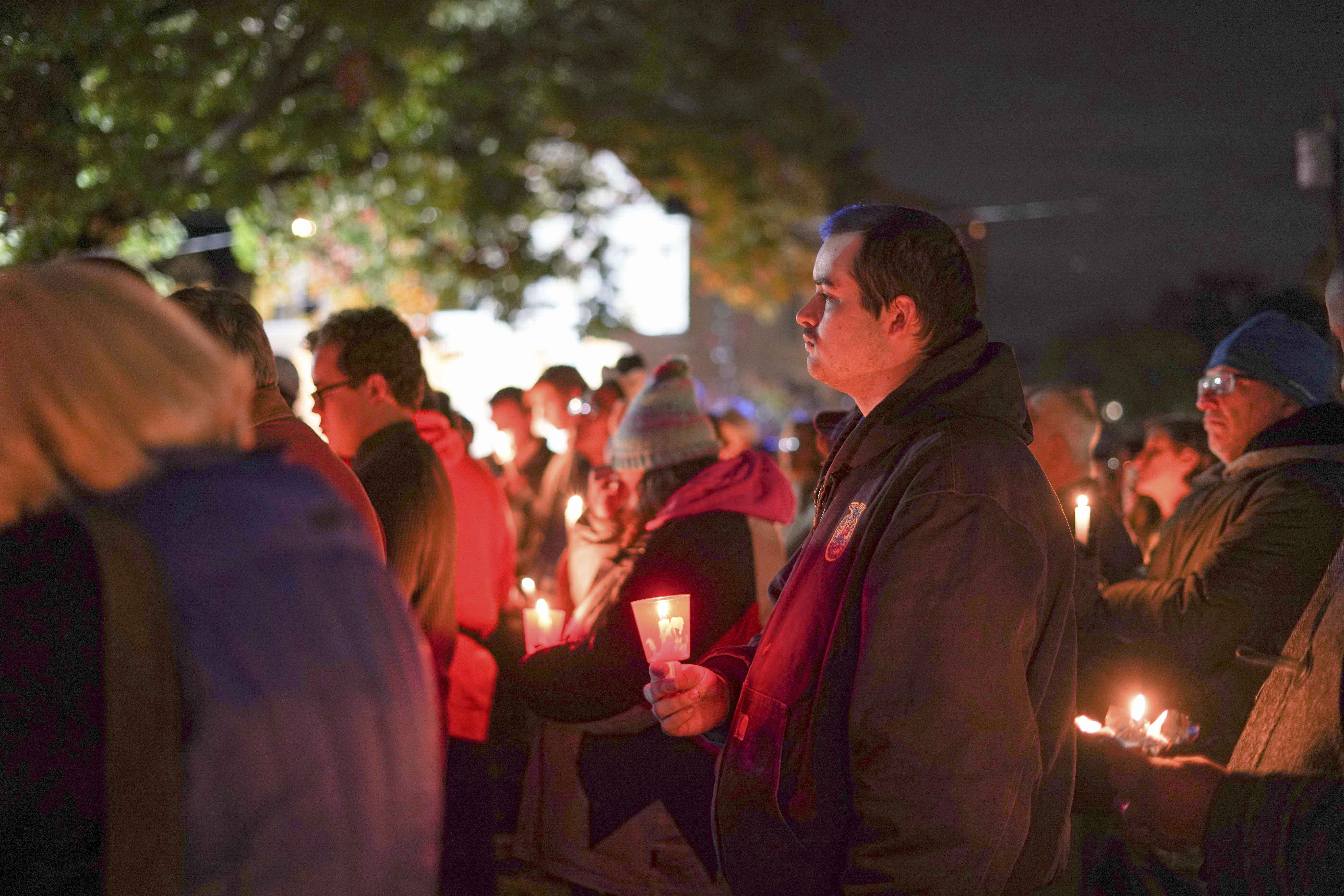
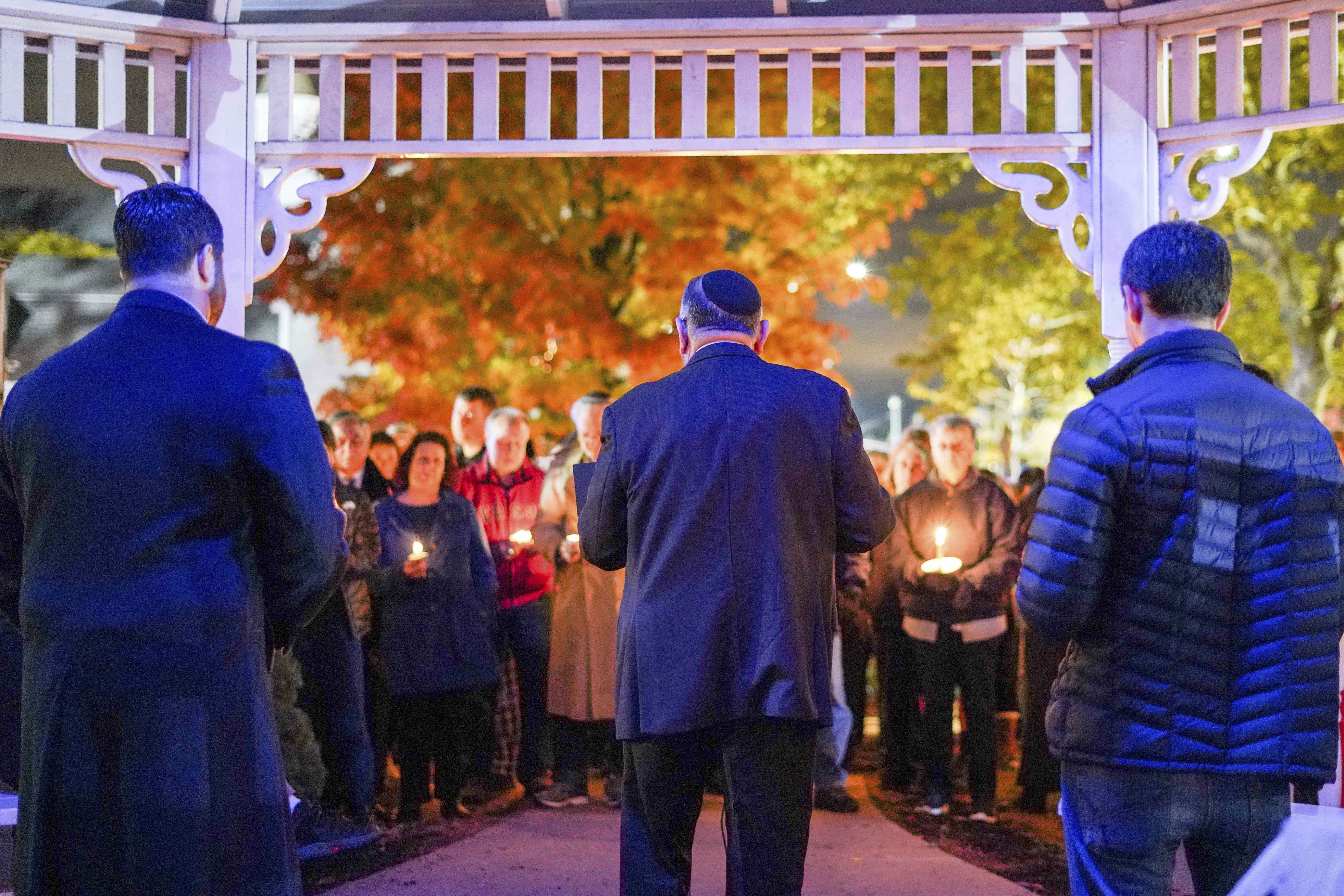
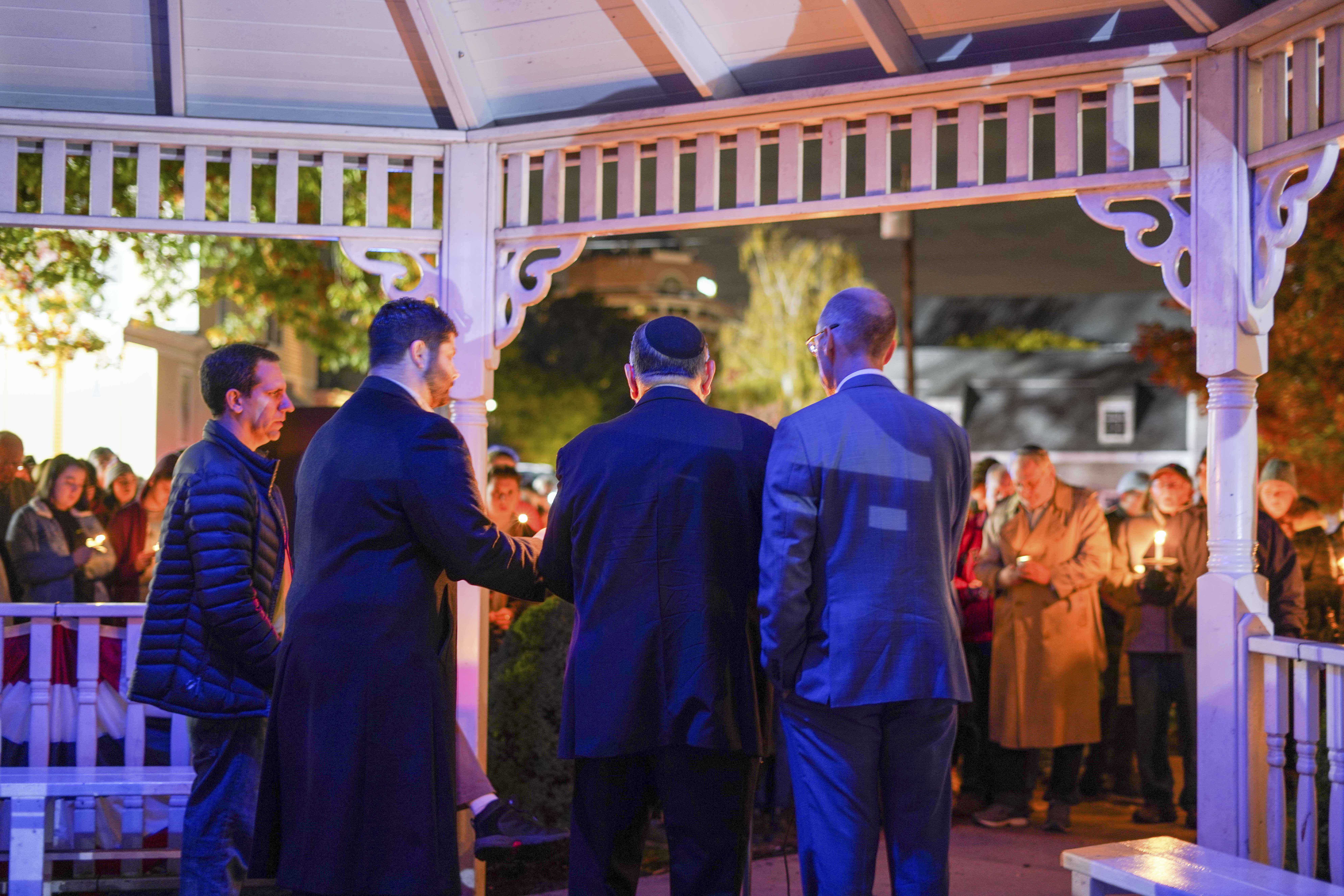
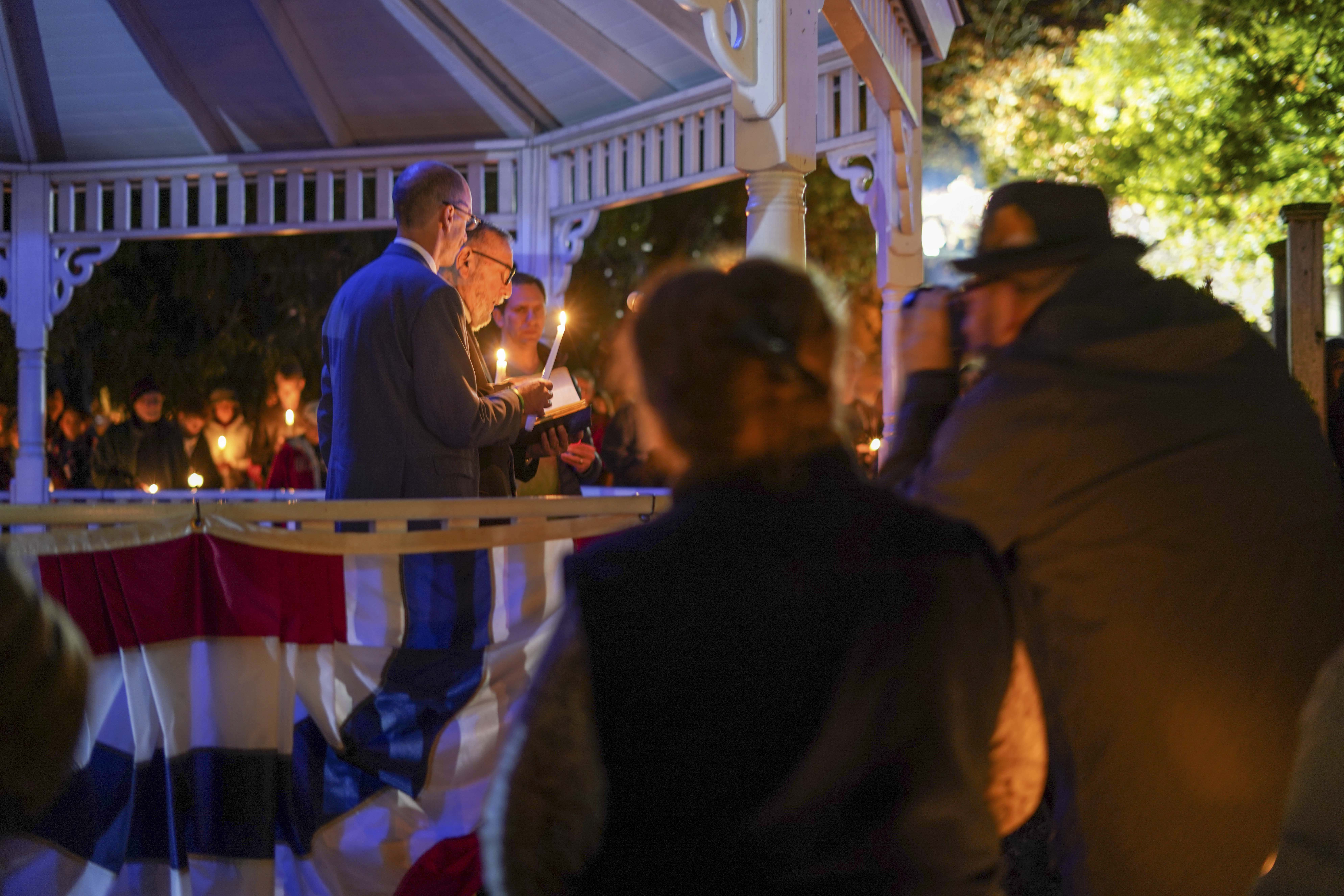
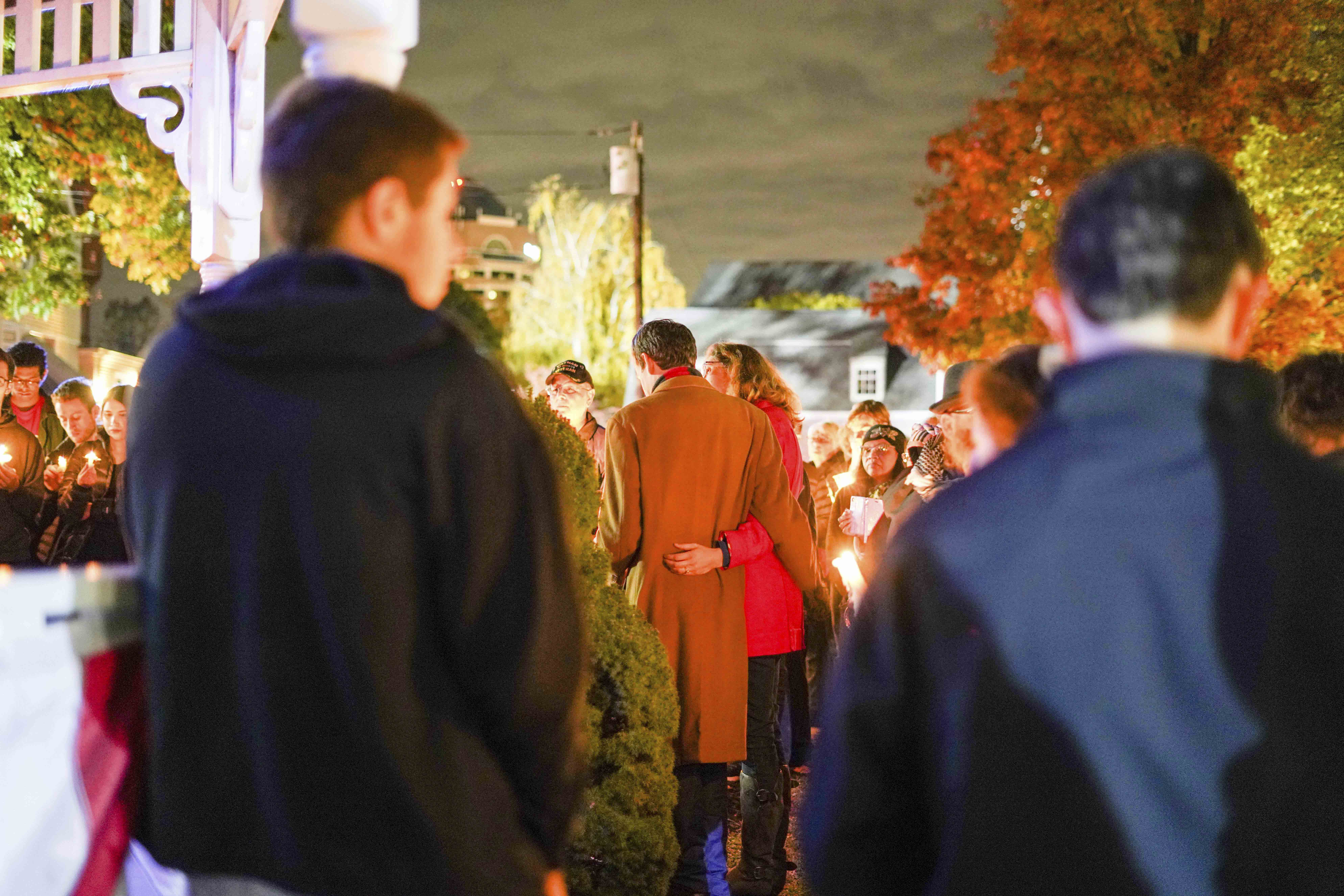
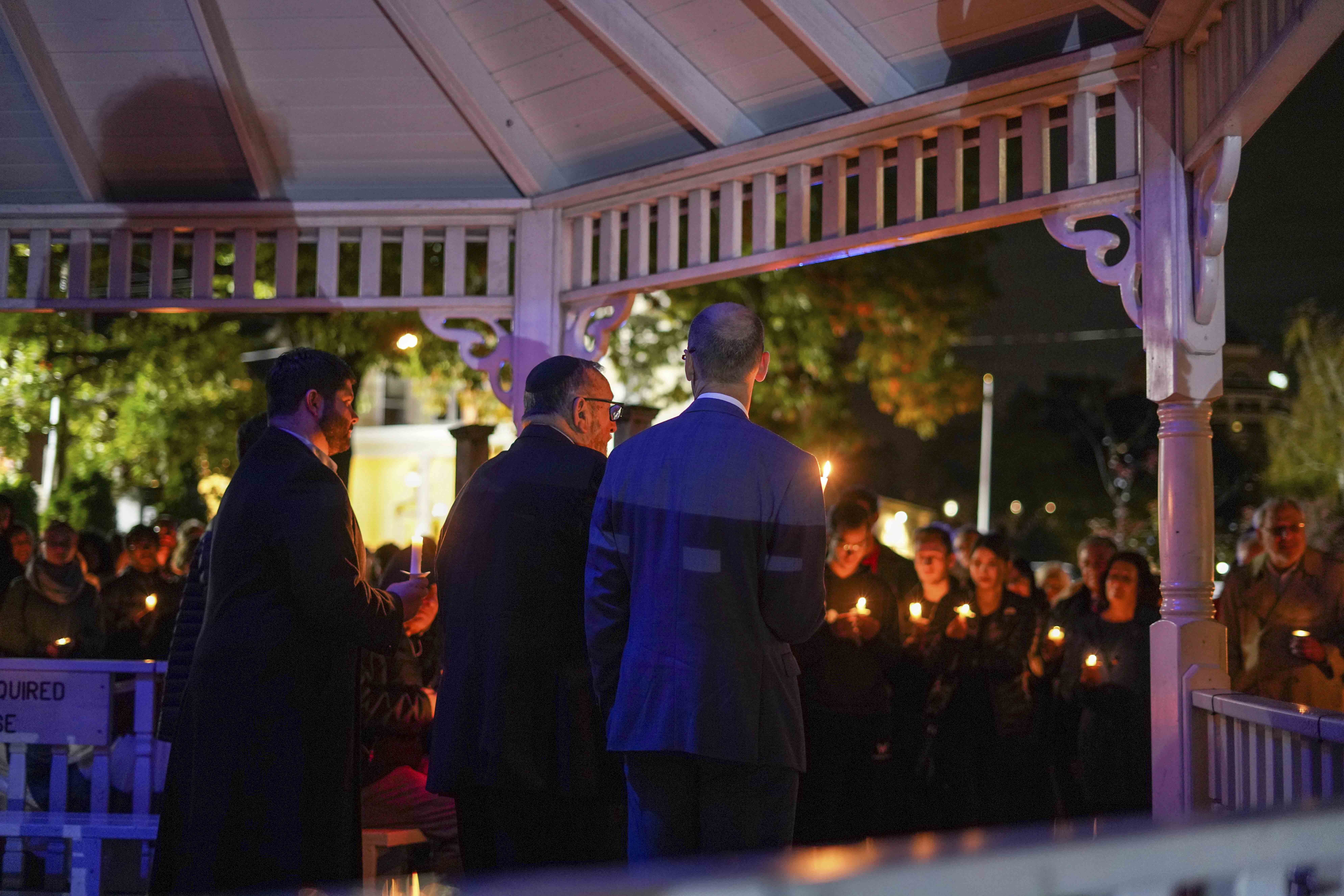
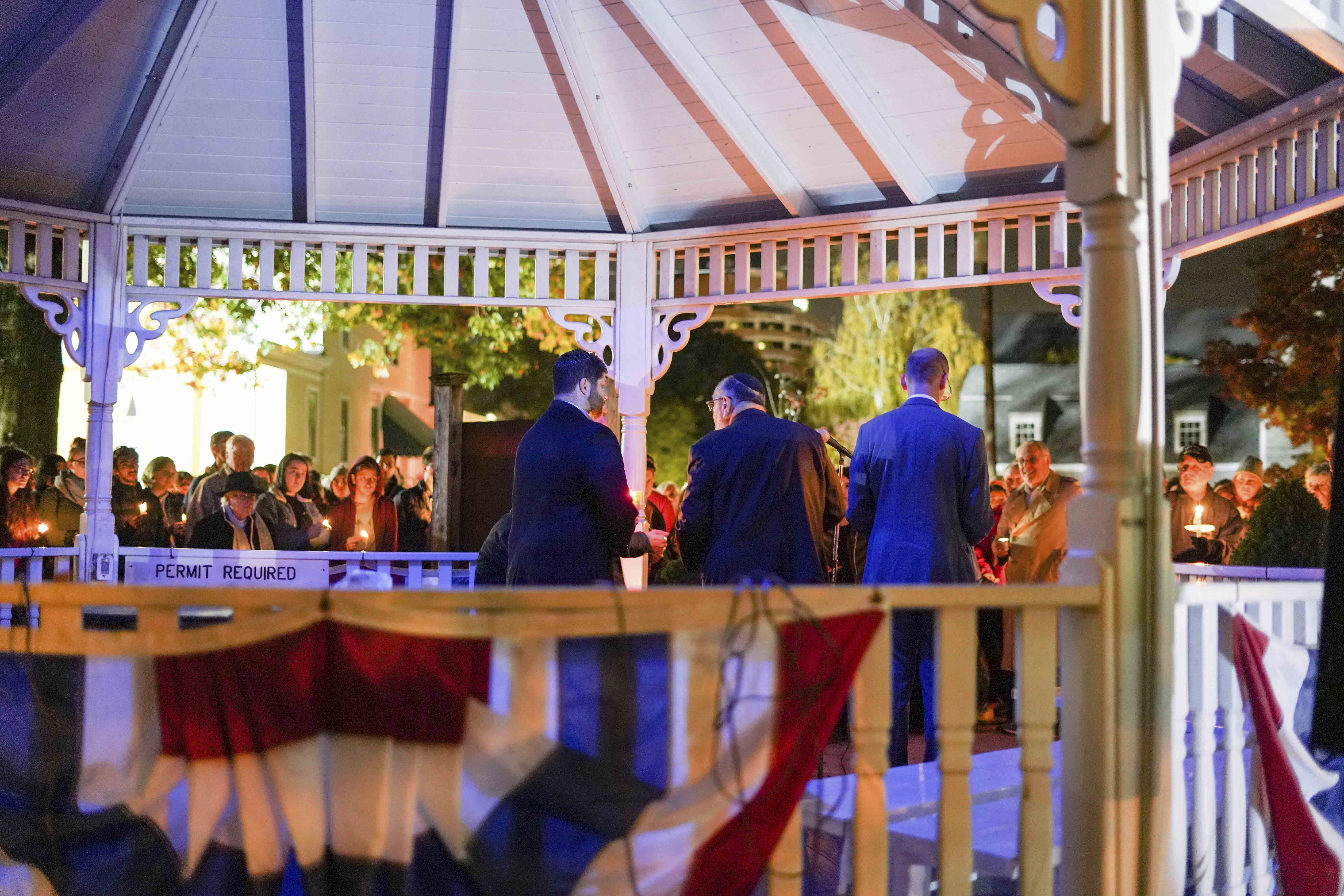
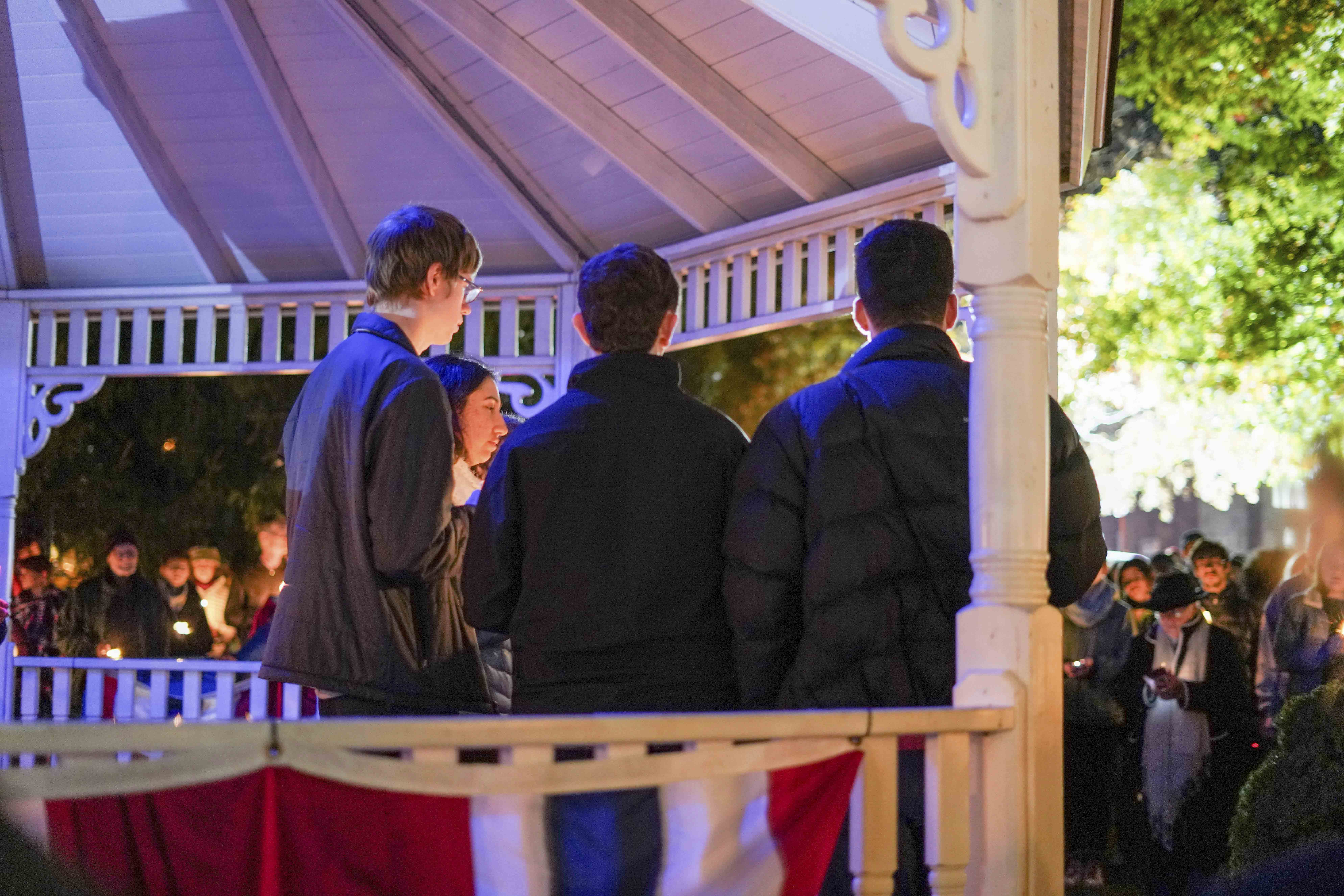
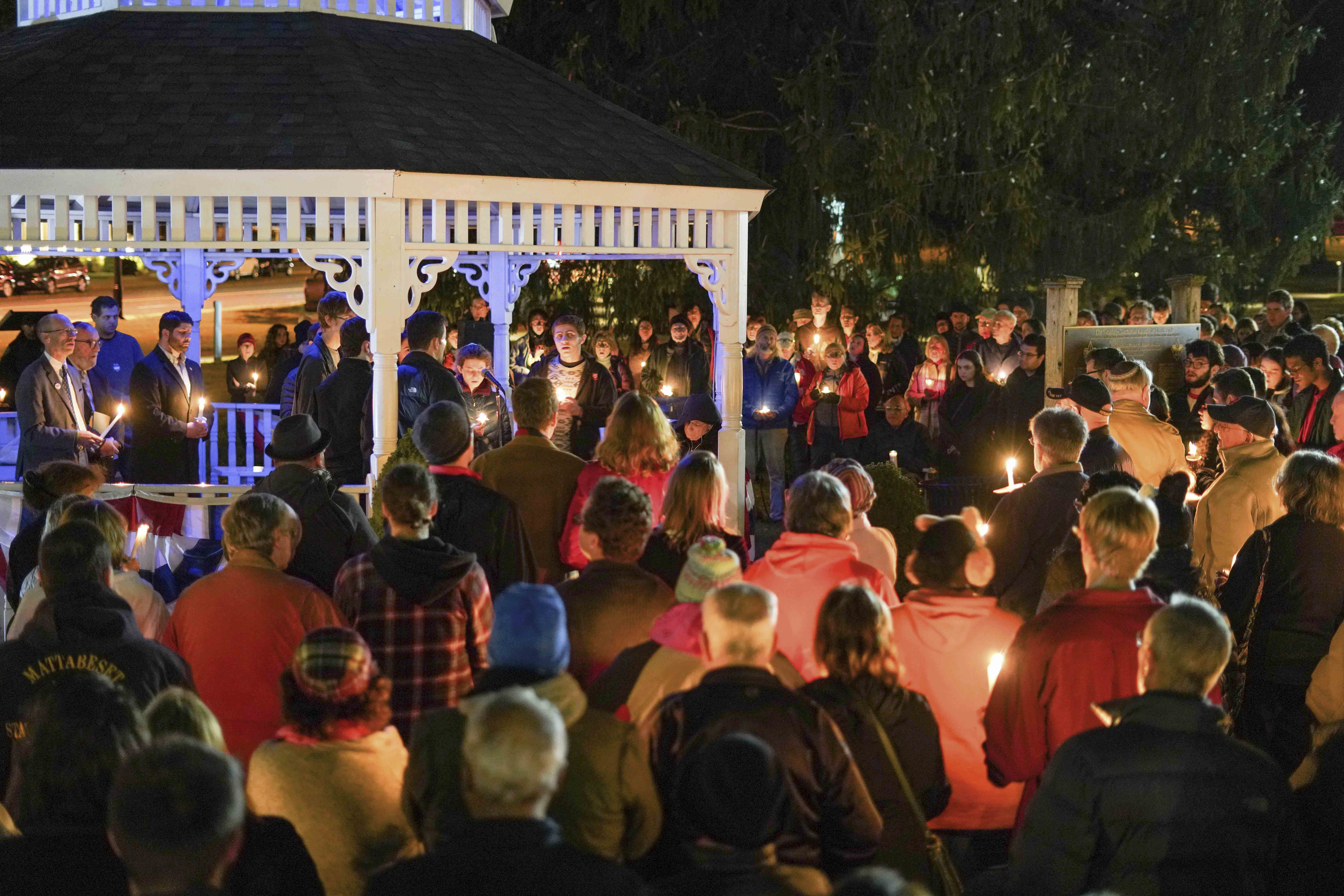
Comments are closed